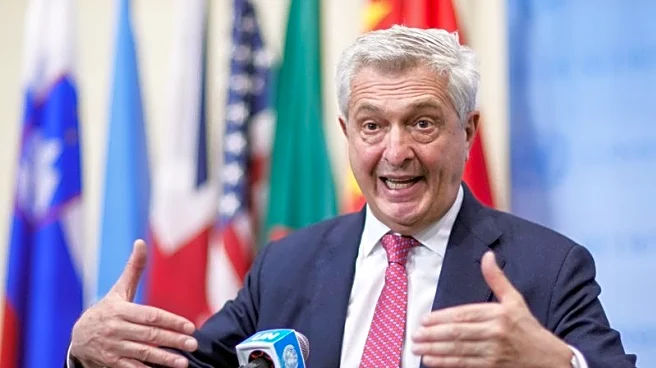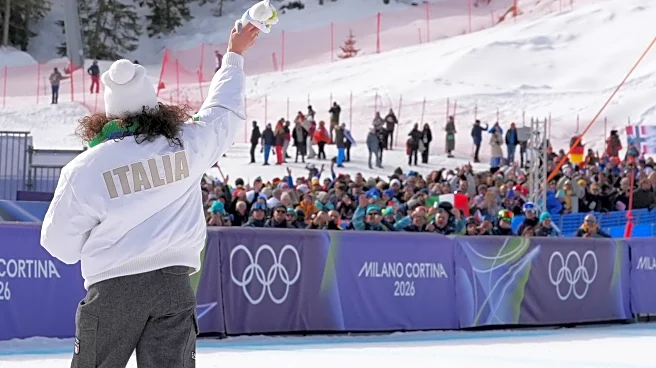By Olivia Le Poidevin
GENEVA (Reuters) -Bowing to pressure to reform the refugee convention and asylum system would be a "catastrophic error", the head of the UN agency for refugees said on Monday.
The comments by UNHCR head Filippo Grandi form a response to U.S. moves to sharply narrow the right to asylum and reshape the post-World War Two framework around humanitarian migration.
"Putting the Refugee Convention and the principle of asylum on the table would be a catastrophic error," Grandi told member
states during an annual UNHCR meeting in Geneva.
"Pressures to reform asylum are not made in good faith, but represent yet another attack on international solidarity, at the time when many countries continue to welcome refugees," he added.
Last month, top U.S. officials urged other nations to join a global campaign to roll back asylum protections, saying migrants should seek asylum in the first country they enter, not a nation of their choosing.
Asylum should be temporary, with the host country deciding when conditions back home had improved enough for their return, they said.
U.S. President Donald Trump's administration is also preparing to set a refugee admissions cap at 7,500 people this fiscal year, a record low that prioritises white South Africans of Afrikaner ethnicity, according to sources.
As conflict drives displacement in the Democratic Republic of Congo, Myanmar, Sudan, Ukraine and Gaza, UNHCR also faces its most severe budget cuts in its history, said the Chairperson of Monday's meeting in Geneva, Marcelo Vazquez Bermudez.
Almost 5,000 jobs have been cut this year, more than a quarter of UNHCR's workforce, and the agency has had to downscale its presence in 185 offices, including southern Africa, Grandi said. More job cuts are expected.
UNHCR projects it will end the year with $3.9 billion in funding, about 25% less than last year, Grandi said.
Aid agencies have been rocked by funding cuts from major donors, led by the U.S. and other Western powers which have prioritised defence spending prompted by growing fears of Russia.
(Reporting by Olivia Le Poidevin, Editing by Miranda Murray and Aidan Lewis)















